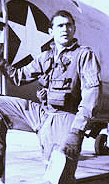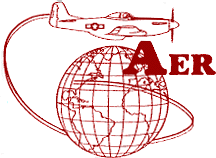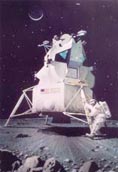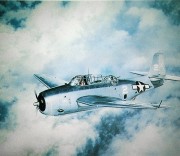|
Of Swift Boats and Fighter Pilots
By Carlton W. Austin
If you are someone who likes to characterize President Bush as some lower form of life, a murderer, a dope, a draft dodger, a malingerer, or, as North Korea’s Kim Jong-il famously said of late, an "imbecile" and a "tyrant that puts Hitler in the shade,” then you’ve already discredited any argument you might make, and I have no interest in engaging you in discussion. But if you are prepared to be reasonable, if you have an open mind, read on.
I’m an Independent and here’s what I’ve observed, during this most poisonous political season, with regard to the Swift boat story (Unfit for Command: Swift Boat Veterans Speak Out Against John Kerry) and the parallel story of George W. Bush’s Air National Guard service, now prominently in the news—again—because of Dan Rather’s 60 Minutes’ vendetta. (Dan, confronted with piles of evidence that the Killian memos are fraudulent, behaved initially like the wizard in The Wizard of Oz, who when exposed by Toto, tells Dorothy not to look at him, but to listen to what he’s telling her: “I know the story is true.” Okay, Dan, now back to your bed, please. Only later did he admit “a mistake in judgment.” But he still needs to apologize to President Bush, not to mention the venerated 60 Minutes veterans whose reputation he has besmirched.)
 The Left, with a wounded Commander Rather still limply trying to lead the charge, continues to focus on the fact—and it is a fact—that George W. Bush failed to take a required flight physical, with the implication being that at best he somehow skirted his obligations to the Guard and that at worst he disobeyed a direct order. (I’ll ignore allegations that he tried to avoid detection of his putative drug use, as this sinks to the level of a Kim Jong-ilism.) The Left, with a wounded Commander Rather still limply trying to lead the charge, continues to focus on the fact—and it is a fact—that George W. Bush failed to take a required flight physical, with the implication being that at best he somehow skirted his obligations to the Guard and that at worst he disobeyed a direct order. (I’ll ignore allegations that he tried to avoid detection of his putative drug use, as this sinks to the level of a Kim Jong-ilism.)
The problem with the Left’s characterization of this incident is that the physical was required only if Bush intended to continue to perform as a pilot. And as any military pilot knows, one may turn in his wings at any time with no necessary negative impact on his military evaluation. Why? Because as a pilot, military or otherwise, one must remove one’s self from flight status for any reason that would make him or her less than fully focused on the task of flying. With the possible exception of modern 14CFR Part 121 flying, which is to say major air carrier passenger flight, flying is a dangerous undertaking. During the course of my nearly 40 years of exposure to aviation, I’ve personally known or been acquainted with over a dozen general aviation pilots who have died flying.
Military flying is more dangerous by far, despite the leering protestations of those on the Left who say the F-102 was a safe and easy plane to fly. (No Century Series fighter was a piece of cake to fly.) If George W. Bush’s heart was no longer in flying, for whatever reason, he exercised good judgment in taking himself off flight status by the act of failing to take a flight physical. From that point on, he was perfectly capable of fulfilling his obligation to the Guard through other available, and equally necessary, Guard activities. He was DNIF, as the acronym goes, which means fit for Duty Not to Include Flying.
[If all you know about flying fighters was learned watching Tom Cruise in Top Gun, you can be forgiven for thinking it's nothing but reckless fun, hard drinking, and a steady stream of beautiful girls. (That's only what the jet jocks want you to believe). The reality is that it's a hazardous business that will kill you — long before any enemy gets the chance to — if you aren't up to the job. My college roommate, retired Air Force Colonel Ed Atkins, flew fighters for 20 years. Ed told me, "Anybody who thinks that flying fighters is not exhausting physically, demanding intellectually, and tough emotionally just has no clue about the complexity of air combat." He added, "I've flown check rides as everything from a second lieutenant to a colonel. The [flight examiner] doesn't give a damn if your dad was George H.W. Bush, the Chief Justice of the Supreme Court, Jesus or Moses. The only question is, 'can you hack the mission?'" And it's harder to do in some aircraft than others. Dubya had the right stuff. --Jeb Babbin, National Review Online, Feb. 19, 2004]
As for the claim in a recent Democratic National Committee advertisement “Fortunate Son” that George Bush jumped ahead of 150 applicants waiting to get into the Guard, retired Brigadier General Walter B. Staudt, commander of the 147th Fighter Group at the time Bush arrived, said recently that there was no waiting list for pilot applicants and that Bush didn’t “leapfrog” over anyone.
This is not surprising, given that the demand for pilots during the Vietnam War was extremely high. Even Tom Hail, a historian for the Texas Air National Guard who reviewed the unit's personnel files while researching Bush's service for a Guard museum display, has said that there were 27 active unit pilots at the time Bush applied for enlistment, which was two less than the authorized number. Yes, two other pilots were in training at the time; another appears to have been awaiting a transfer to that unit. Nevertheless, just meeting unit demand for pilots without any kind of pipeline capacity is foolish mismanagement, especially in light of the aforementioned high demand attendant to the war. So, given the critical Cold War mission of North American air defense against a possible Soviet threat, even at 30 pilots the unit could be considered to have been under strength. 
Which introduces yet another salient point: The role of NORAD (North American Air Defense Command) was just as crucial, just as deadly important, as the role of those pilots who flew out of Da Nang or off carriers in the Tonkin Gulf, even if it didn’t involve daily encounters with SAMs and Mig-21s . Remember, this was the height of the Cold War; the prospect of attack by enemy bombers carrying nuclear weapons was a sobering reality of the day. If George W. Bush, and others in his and similar units, hadn’t filled this critical role, other highly trained Air Force, Navy, Marine Corps or Guard pilots would have had to. Of this there is no question.
But the ultimate dispute here is not one of ability or even of service but one of character, just as it was with the intellectually gifted Bill Clinton. And it all comes down to this: No one who served with President Bush has come forward to say that he was not a skilled fighter pilot and a stand-up member of his squadron. And despite a lot of falderal to the contrary, the records show he served more than enough hours (or equivalent points in Guard parlance) to satisfy his Guard requirements, although the efforts were not equally distributed over the years he served, a not unusual circumstance (Byron York, National Review).
Moreover, George Bush has authorized the release of all his military records, including medical records. And while there are conflicting reports as to whether he actually signed a Form 180, the point is mute. Why? Because as Commander in Chief he publicly ordered their release, which amounts to the same thing as signing a form, if methodologically different. (See Post’s quote below.) The fact that some details, so far inconsequential, have dribbled out more slowly may be troublesome to those who prefer conspiracy, but to me it looks to be nothing more than typical bureaucratic bungling.
“At the White House, press secretary Scott McClellan said he couldn't say specifically whether Mr. Bush signed Standard Form 180, but the president did request and release his own military records in February. ‘I don't believe he signed any form, but he did authorize making his military records available publicly,’ Mr. McClellan said. ‘We have released all the records, and reporters were allowed to look at his medical records as well.’”—Washington Times, August 18, 2004.
“Although the St. Louis repository is under the control of the National Archives, officials at the Archives say that the records belong to the military unit that generated them. In practice, they can be released to outsiders only with the permission of the veteran concerned. Such access is usually granted through the signing of a release known as Standard Form 180, a step that neither candidate has so far taken.” Washington Post, September 30, 2004
On the other hand, something over 240 people who served with, or had knowledge of, John Kerry’s service, including Republicans, Independents and Democrats, have stepped forward to say he is “unfit for command.”
Are there some inconsistencies in the Swifties’ account (a really compelling read, by the way)? Yes, but to me they are explainable, especially with regard to the question of “enemy fire” during the action for which John Kerry received his Bronze Star. From what I’ve heard from the veterans, it was standard operating procedure to lay down prophylactic suppressing fire under any circumstance where enemy ordinance was used or suspected of being used—in this case a mine that destroyed one of the Swift boats in Kerry’s flotilla. Since Kerry took off down river immediately (the only one to do so), he and his crew could easily have mistaken the “firing” that was still occurring upon his return to be enemy fire.
As for the question of the after-action report, upon which was based the commendation for his medal, the question is: Did Kerry write it? We don’t know, because Kerry won’t say. His supporters claim that official Navy files back up his story. But here’s what the Swifties say on their Web site, “One has to understand what constitutes ‘Navy files.’ The Navy files the Kerry campaign is referencing are largely John Kerry’s personal accounts – his after action reports. Therefore, these “files” are largely based on Kerry’s personal accounts, which we have called into question. Saying Navy files back up Kerry’s story, is like saying Kerry’s story is backed up by Kerry’s files.”
The above question, as well as lingering doubts about whether one of his Purple Hearts was the result of a self-inflicted, or accidental, wound, could almost certainly be cleared up if Kerry would follow Bush’s lead and sign a Form 180, releasing all his records, including medical records. As yet, he hasn’t. So people of good will, who are willing to weigh both sides of this—or any—argument are left to wonder. And that’s John Kerry’s fault.
It was John Kerry’s fault, too, when he told radio host Sean Hannity: "I've never made any judgments about any choice somebody made about avoiding the draft, about going to Canada, going to jail, being a conscientious objector [or] going into the National Guard," thus lumping George Bush and every other patriotic National Guardsmen in with the likes of draft dodgers, flag burners and all manner of ner-do-wells.
In fact, of the 8,744,000 US personnel who were on active duty during the Vietnam War (August 5, 1964 - March 28, 1973) only 2,594,000 served within the borders of South Vietnam from January 1, 1965 - March 28, 1973. Therefore, only about 30% of all active-duty military personnel actually saw service in Vietnam.
Is John Kerry saying, then, that the 7 out of 10 men and women, enlisted, non-commissioned and commissioned officers, who served elsewhere, from Germany to Japan to South Korea to the borders of the continental United States, somehow deserve less gratitude from their country? I think not. And this grateful U.S citizen says thank you—a thousand times over. Now I’ll leave it to you to decide, on the basis of character, who is and who is not unfit for command.
|

 The Left, with a wounded Commander Rather still limply trying to lead the charge, continues to focus on the fact—and it is a fact—that George W. Bush failed to take a required flight physical, with the implication being that at best he somehow skirted his obligations to the Guard and that at worst he disobeyed a direct order. (I’ll ignore allegations that he tried to avoid detection of his putative drug use, as this sinks to the level of a Kim Jong-ilism.)
The Left, with a wounded Commander Rather still limply trying to lead the charge, continues to focus on the fact—and it is a fact—that George W. Bush failed to take a required flight physical, with the implication being that at best he somehow skirted his obligations to the Guard and that at worst he disobeyed a direct order. (I’ll ignore allegations that he tried to avoid detection of his putative drug use, as this sinks to the level of a Kim Jong-ilism.) 

